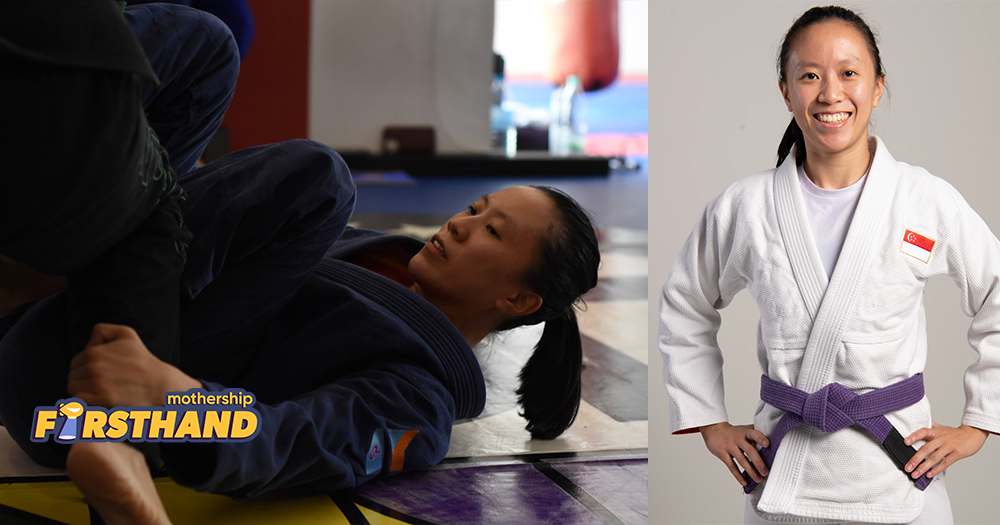When I first meet Teh May Yong, she seems decidedly ordinary.
That lasts about three seconds until she opens her mouth.
The jiu-jitsu athlete is no stranger to interviews, and it’s not hard to tell why. At 30, her life has been a portrait of novelty. She is:
- An ex-national runner who 180-ed to jiu-jitsu seemingly overnight.
- A podiatrist by training who graduated and promptly signed on to become a Singapore Armed Forces officer.
- An Asian-Games-qualifying Team Singapore athlete.
I’d love to tell you that despite all these, she’s just a regular person.
But she is most definitively not.
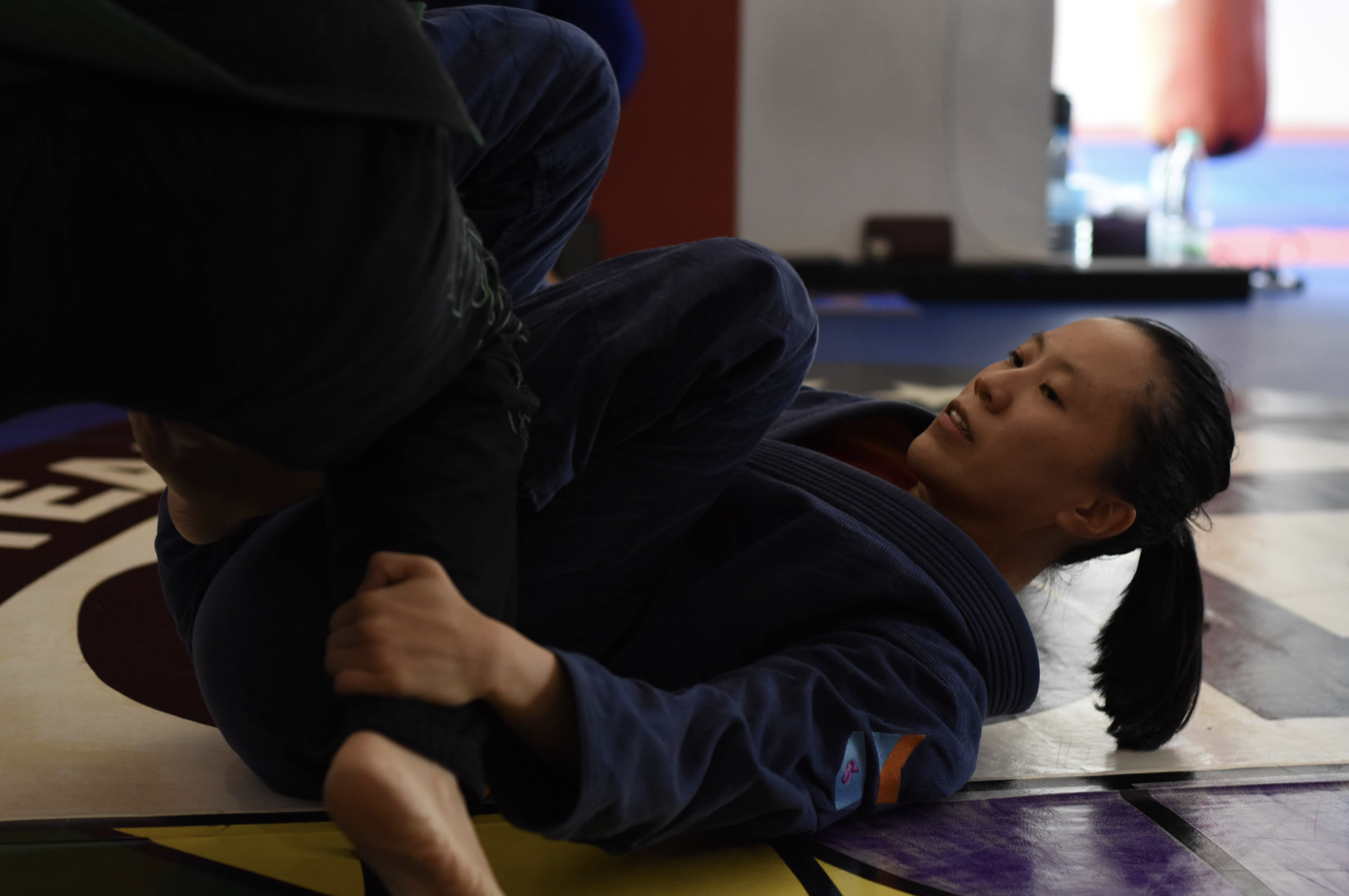 Photo from Teh May Yong
Photo from Teh May Yong
Competitive by nature
Teh won her very first sport medal in Primary 5.
It was something of an accident. She’d seen her friends win medals in their sports, but not belonging to any team, she never had the opportunity to win one.
“But I really, really wanted one,” she stresses. “I wanted very very much to win a medal….so I was looking for a way to win some kind of medal.”
With no real skills but plenty of competitive spirit, she saw her chance in Primary 4, at the school’s Sports Day event. She immediately volunteered for the training sessions, hoping to get chosen — but didn’t end up getting selected.
Fortunately, the next year, she won a medal completely by accident: for performing the best in her batch for inclined pull-ups.
“I had no idea what the heck that was for. But somehow I managed to get, I think 36,” she says. “This was because I played in the playground a lot, like on the monkey bars.”
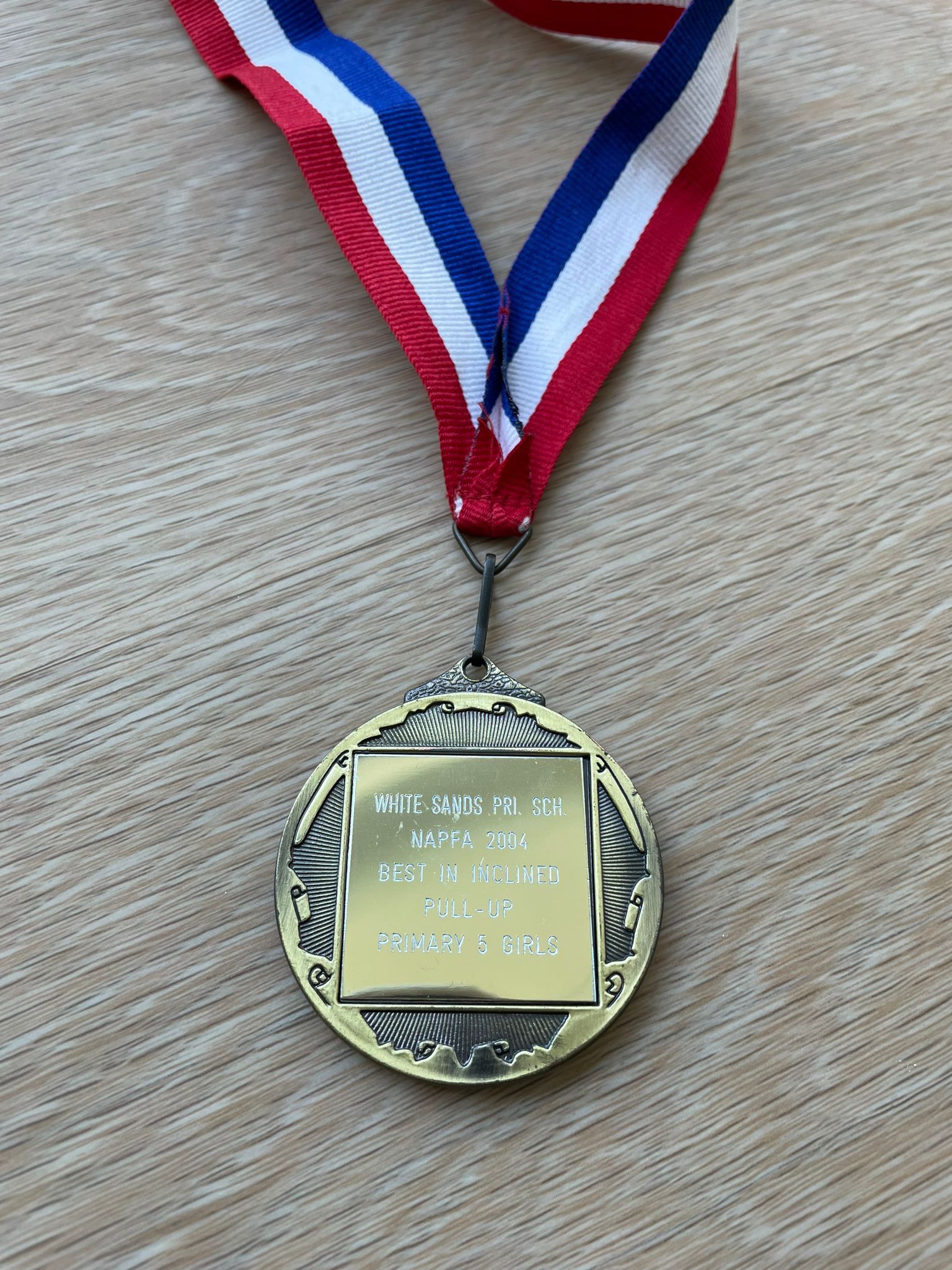 Photo from Teh May Yong
Photo from Teh May Yong
Having had her first taste of victory, she decided she would win the medal again the next year. Without telling her classmates, she trained for the NAPFA test, even strategising the order in which she would hit the stations so she could perform as well as possible in inclined pull-ups.
“In the NAPFA test, for females you only need to get a couple, then you can pass or get a gold,” she explains. “But I did so many that my teacher looked at me like what the heck, and all my classmates asked ‘are you crazy or what?'”
“But I knew that one month later, they’ll call my name on stage. I planned it all out.”
She did end up getting the medal, with 42 pull-ups — top in the entire school.
“I beat all the boys,” she tells me. “The highest boy was 39. See, I remember, because it was so significant in my life.
“And everyone thinks that it was some random event, but it was not. I planned it all.”
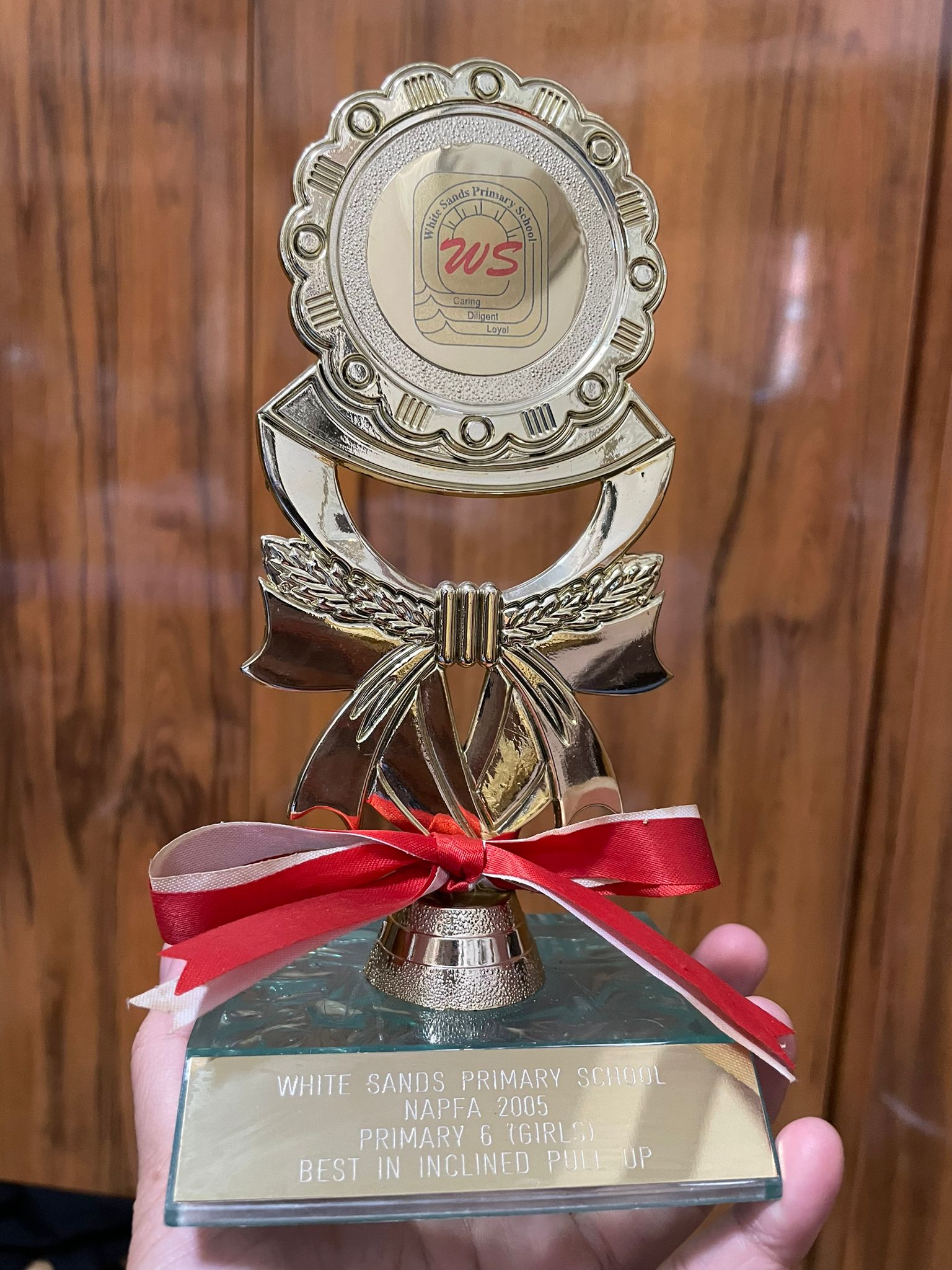 Photo from Teh May Yong
Photo from Teh May Yong
Big dreams
With such a childhood, it’s utterly unsurprising when Teh informs me that representing Singapore in major athletic games has always been her goal.
After primary school, she went to the Singapore Sports School, where she honed her hyper-competitive nature into keen athletic skill.
There, she took on long-distance running and quickly became “one of the better ones”, representing Singapore in a few competitions.
However, after moving to Australia for university — “I suddenly became so mediocre,” she recalls.
“In the circuit there, I never won anything. I was always in the middle, middle, middle. And although I could train in it, I felt that I couldn’t reach my dreams in this field.
And why would I train so much, just to never be the best?”
Demoralised, she began exploring other sports: swimming, judo — and finally, jiu-jitsu.
Jiu-jitsu was, and still is not, an Olympic sport. “So I was very skeptical about joining it,” Teh says.
Not only did it limit her potential achievements beyond a certain level, it wasn’t certain that she would get anywhere with the sport at all.
The game-changer was when she went for a trial and was partnered with a girl who “taught me a lot of things”. Impressed, she relayed this experience to another friend.
“And that person told me that this girl is a world champion,” she says.
That was the “spark of change”, as she tells it. Seeing such achievement in someone so close incited that competitive spirit in her once again.
And almost overnight, she threw away her years of running and changed her sport to jiu-jitsu.
All in pursuit of that so-elusive goal.
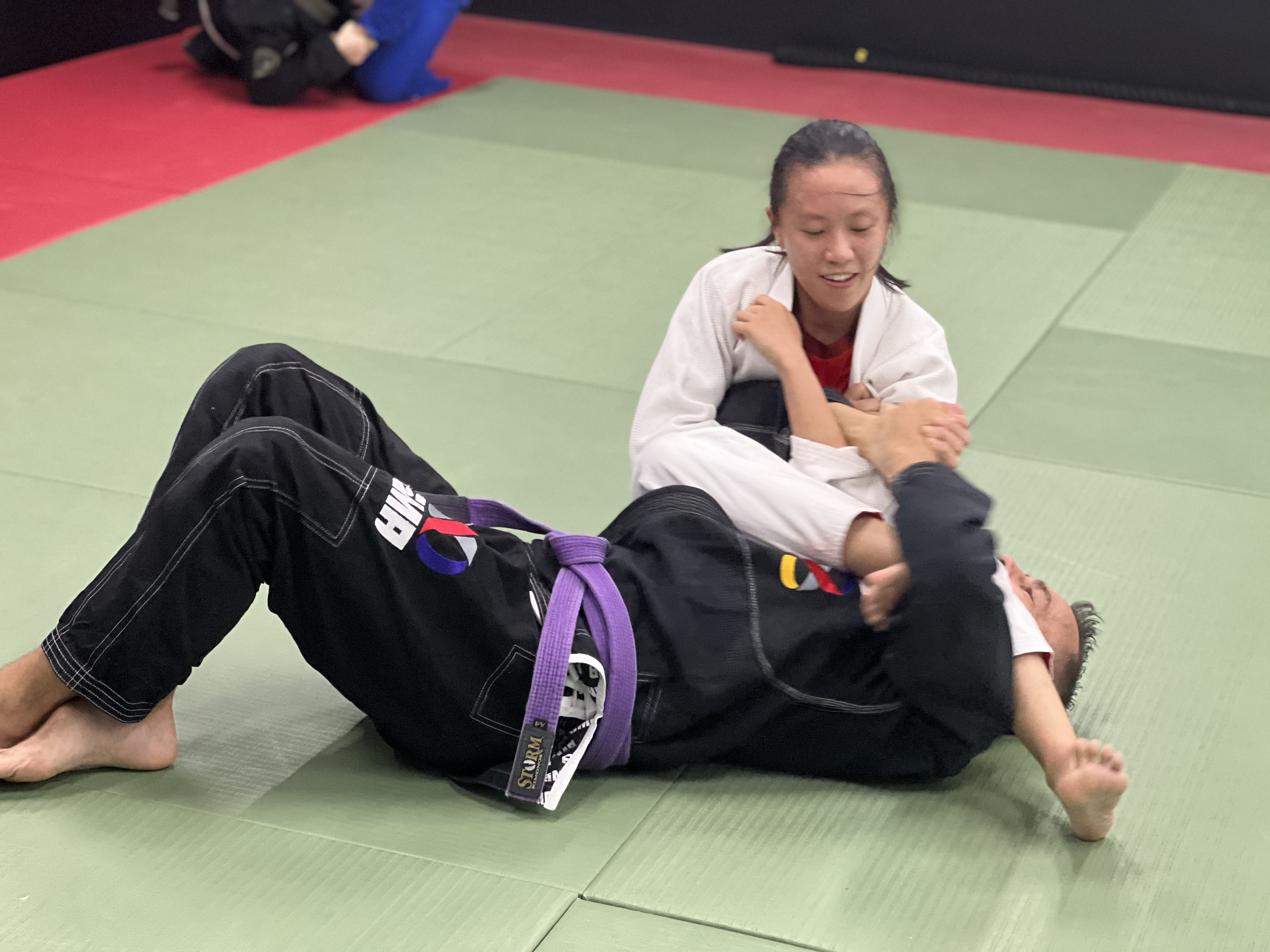 Photo by Ilyda Chua
Photo by Ilyda Chua
But logical
I’m not going to lie — I’m no athlete, and up to this point, Teh’s story was not exactly the most relatable.
Personally, I struggle to find enough competitive spirit to complete a game of Monopoly.
But more than her ambition and razor-sharp determination, there was something intriguing about her story: her status as a “working-athlete”.
That means she’s a civil servant (an SAF officer, to be precise) by day, athlete by night.
As someone who struggles to squeeze in the occasional run with my one (1) job, this seemed like an insurmountable commitment.
Why would someone choose to be a working-athlete; indeed, why would someone want to, considering work would inevitably mean compromising on valuable training time?
There’s a straightforward, methodical manner to Teh, and she answered in the same way.
There are two reasons why she works.
One, for money.
And two, she’s really passionate about being in the SAF.
I decide to confront the first answer first, it being the more straightforward one.
“Basically, I don’t have funding for jiu-jitsu. The whole team, none of us have funding,” she explains. “So we have to work in order to pay for training and competitions. Everything is covered from our own pockets.”
As Teh explains it, it’s not unusual. Athletes do get support, such as access to sport medicine, sport science, and training assistance grants, when they are carded — something that they must be nominated into by national sports organisations.
But they only receive monetary rewards when they attend and medal in major games (Olympic, Commonwealth, Asian, and SEA Games), under the Major Games Award Programme by the Singapore National Olympic Council.
To even get there is a journey, and an expensive one.
“So I pay for my uniforms. I pay for my gym memberships. I pay for my training every day. Everything is paid for [by myself].”
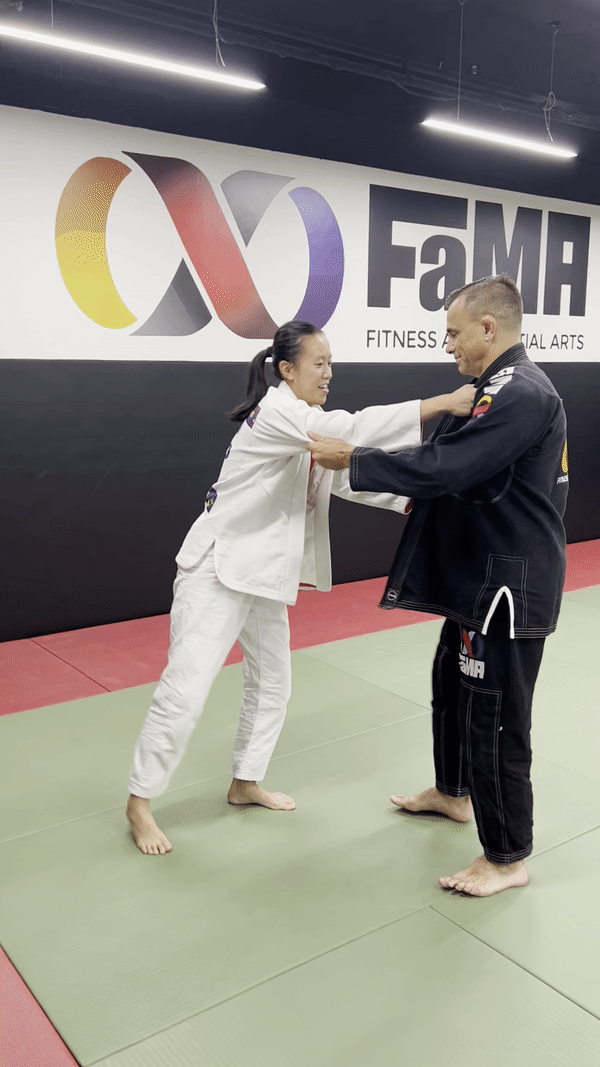
As to the second answer — the SAF is another childhood aspiration, dreamt up through movies and books. Teh admits that even if she had become a full-time athlete, she still would’ve joined the SAF Volunteer Corps.
“So I believe that I’m actually representing Singapore in two different sectors. As a sportsman, and in the public sector.”
It’s very characteristic of her that she’s decided, uncompromisingly, to live out both her dreams at once. But it has come at a cost, and not just in the monetary sense. Every day after work, Teh goes for training. She stays at the gym till around 9, 10pm.
“I don’t deny that it’s difficult,” she admits.
“So I got no life one. My social life is my sports. I think a lot of people don’t understand, they think it’s just a lot of hard work.
But I love jiu-jitsu, so my fun time is actually going there. So I don’t see it as a sacrifice, I see it as doing something that I want to do.”
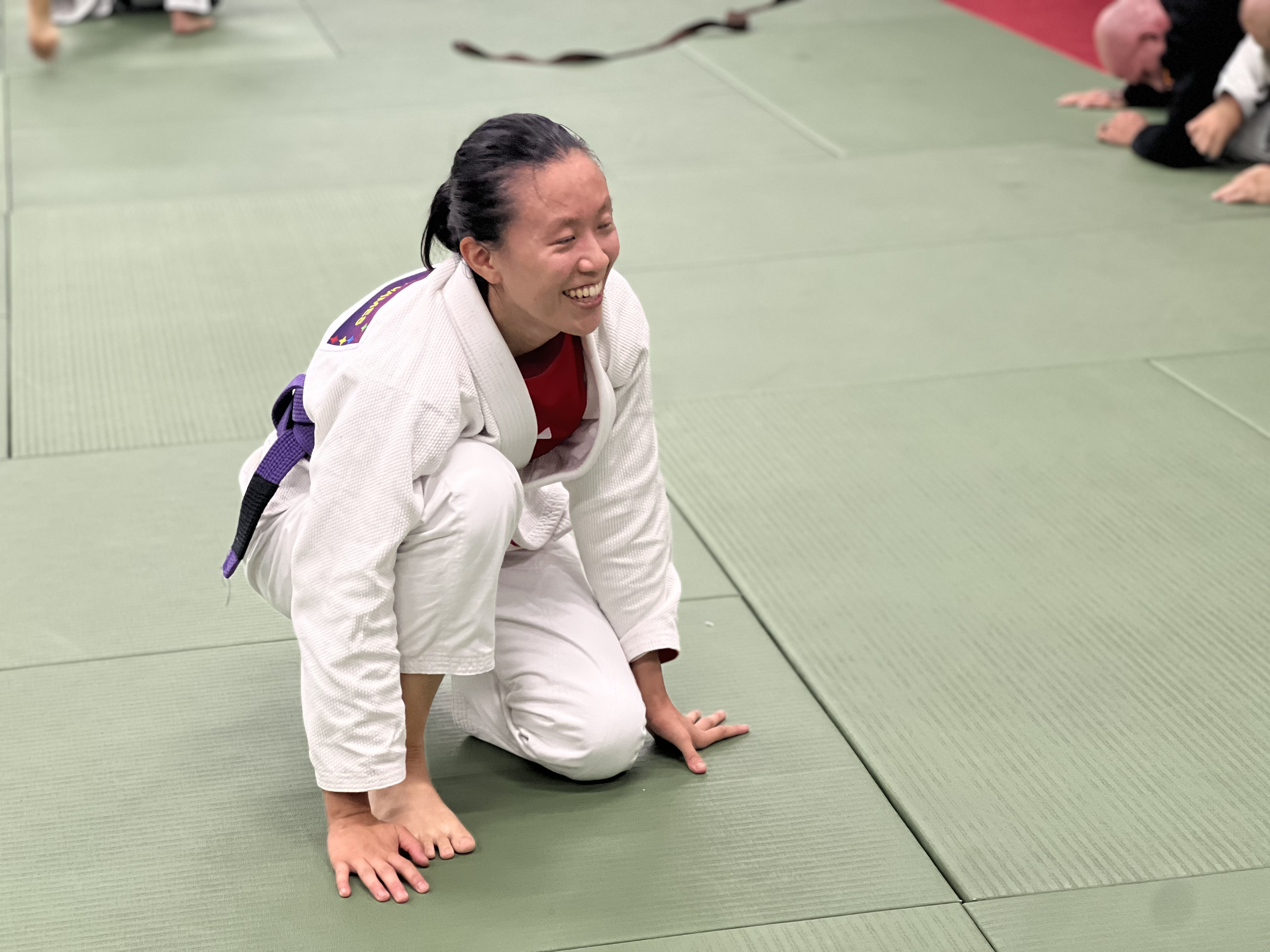 Photo by Ilyda Chua
Photo by Ilyda Chua
The Singaporean athlete
There’s always that conflict when it comes to sport in Singapore.
We want medals, but the thought of letting our children pursue full-time sports with no backup plan is terrifying.
We want to excel, but we don’t want to spend too much taxpayer money on it. (And God help the man who wastes his state-given opportunities).
In fact, beyond the occasional wild talent along the lines of Joseph Schooling or Shanti Pereira, it’s a hard call to direct the resources to them at all.
In that sense, Teh is the ideal Singaporean athlete: someone who’s deeply passionate and talented, but who is self-reliant, realistic, and most importantly, employed.
Quite a far cry from that conventional mould of a never-say-die, death-or-glory, odds-defying Olympic athlete.
With her dual commitments in mind, I ask her a question that’s been nagging at me for a while: Should have to choose between her sport and her work, what she would choose?
To my surprise, she actually answers, with a no-nonsense straightforwardness I appreciate very much. “I think I’m a very realistic person,” she caveats.
“I know my lifespan in a sport, and I know what feeds the family. I love both, but if you force me to pick one, I will go for the realistic and logical answer which is my work.
Because sport doesn’t pay me…and without my work, I cannot fund my sport.”
The athlete we deserve
In that sense, she’s perhaps the quintessential Singaporean athlete — but she’s also the athlete we deserve.
At risk of sounding harsh, so far, Teh has medalled just once in a major games: a bronze at the 2019 SEA Games.
That’s not to say she doesn’t want to do better. She does; she just knows it’s a long shot, one that requires years and years of dedication. And that’s time she may or may not have to give.
In another universe, she candidly admits, she might have become a full-time athlete. If she had the funding, if she had started earlier, if things weren’t the way they are.
But they are. And the thing is, Teh’s not hard up about it.
This year, she made it to the Asian Games — something which she calls “a lifelong dream”.
She recalls the lights and grandeur of her first-ever international Brazilian jiu-jitsu competition in Mongolia, and it’s clear that this is something she wants with all her heart.
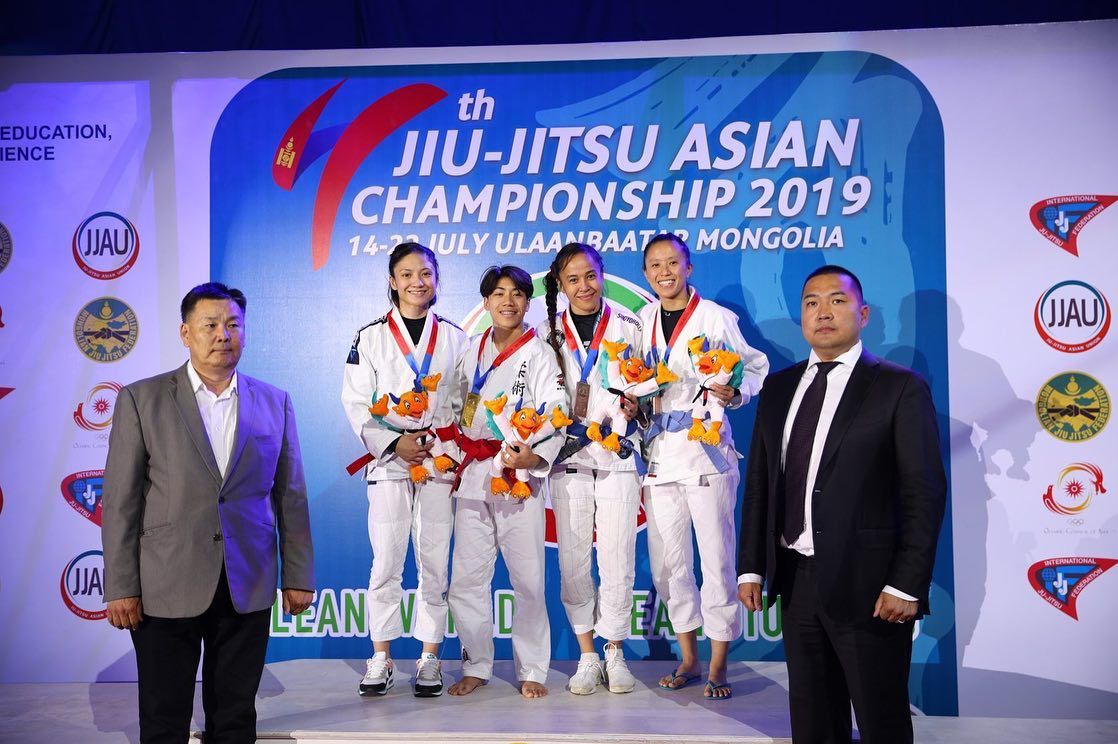 Photo from Teh May Yong
Photo from Teh May Yong
“Sometimes I plan things for 10 years,” she tells me. “And this I think took 20 years, to finally hit this goal.”
But, with more candour than I could ever hope for, she calls herself an underdog. “I’m very realistic lah,” she says. “But I’ve more or less achieved my dream, by even attending the competition.”
Teh doesn’t do lofty dreams — she does goals, with rock-solid evidence and years and years of planning and strategy.
She still hopes to medal one day. It’s something that she has dedicated her life to, after all.
But that, as with everything else, takes time.
“I’m a decent athlete, but I’m not the best…I believe that although there is potential for me to win certain things, because of the circumstances, I might not be able to achieve [what I could],” she says.
“But I believe that I will eventually get what I set out to achieve. It’s just a matter of being consistent and never losing sight of those goals.”
Top image from Teh May Yong
If you like what you read, follow us on Facebook, Instagram, Twitter and Telegram to get the latest updates.

